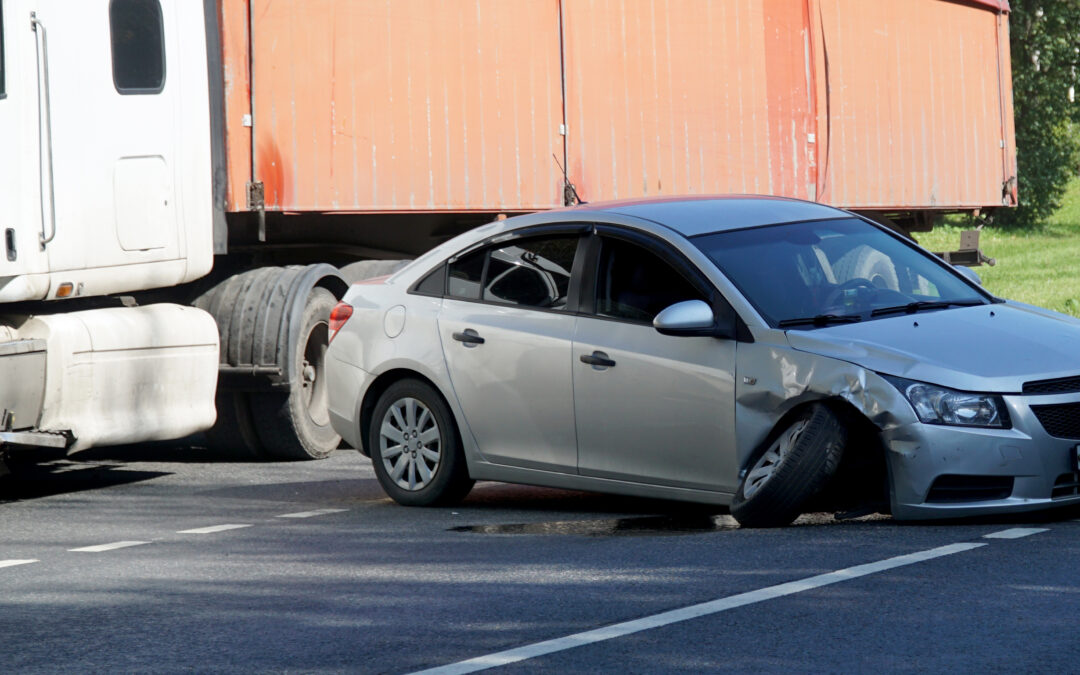When you’re involved in a big truck accident, the aftermath can be devastating—physically, emotionally, and financially. Beyond that, pinpointing truck accident liability isn’t always straightforward. Federal regulations, multiple responsible parties, and overlapping insurance policies often confuse who is liable in a truck accident.
What is Liability in a Truck Accident?
In a truck accident, liability refers to the legal responsibility for causing a crash that injures you or damages your property. In a typical car accident, fault often rests with a single driver. In a big-rig crash, however, multiple parties may share blame. The truck driver, the trucking company, vehicle manufacturers, maintenance shops or cargo loaders can all play a role.
Why Establishing Fault Matters for Your Claim
Identifying each responsible party is an important step in receiving fair compensation. Insurance companies won’t pay out until you show liability. The stronger your proof of negligence—like driver logs, maintenance records or crash reports—the better your chance of securing full damages. Establishing fault also determines which insurance policy applies and sets the ceiling on your claim. Without clear liability, you risk delay, underpayment or outright denial of the benefits you need to recover.
Determining Who Is Liable in a Truck Accident Case
18-wheeler accidents often result from one or more preventable factors. Understanding these causes can help victims and their attorneys identify responsible parties, build stronger cases and push for safer roads.
Driver Fatigue & Hours-of-Service Violations
Truck drivers face tight schedules and long hauls. To meet deadlines, they may skip required rest breaks or log false hours. Fatigued drivers have slower reaction times, impaired judgment, and a higher risk of falling asleep at the wheel. When carriers ignore federal hours-of-service rules, they put everyone on the road in danger.
Speeding, Distracted or Reckless Driving
Speeding reduces the driver’s ability to avoid hazards and lengthens the necessary stopping distance. From texting or using a phone to eating behind the wheel, distracted driving takes the driver’s eyes off the road and hands off the wheel. Reckless acts like aggressive lane changes and tailgating further raise the odds of a serious crash.
Poor Truck Maintenance & Equipment Failure
Carriers must keep their rigs in safe, working order. When they cut corners on maintenance, critical systems can fail. Worn tires, malfunctioning brakes, and broken suspension parts all threaten safe travel. An equipment defect at highway speeds leaves little time to react and can lead to catastrophic wrecks.
Improper Cargo Loading & Shifting
Shippers and loading crews must secure freight correctly. Overloaded or unevenly loaded trailers change a truck’s center of gravity. During turns or sudden maneuvers, cargo can shift or spill, causing the driver to lose control. In the worst cases, a shifting load can cause the truck to roll or jackknife the trailer.
Working with a Truck Accident Attorney
A truck accident attorney can guide you through every step of proving fault. From day one, they know which evidence to secure and which rules apply. They piece together facts, target all responsible parties, and build a case that shows exactly who must pay for your losses. With their expertise, you can avoid common pitfalls and stand a better chance of full compensation.
Identifying Every Potentially Liable Party
A thorough attorney looks beyond the truck driver. They examine the carrier’s hiring and training practices, inspect maintenance records, and review cargo loading procedures. They also consider parts manufacturers and third-party mechanics.
Calculating Economic and Non-Economic Damages
Your attorney will also tally all of your financial losses, including medical bills, rehabilitation costs, lost wages, and future care needs. They then assign value to your pain and suffering, emotional distress, and loss of life’s enjoyment. By combining these figures, they set a fair compensation goal that reflects both your out-of-pocket costs and your personal hardship.
Negotiating with Insurance Companies
Skilled attorneys handle all insurer contact, shielding you from low-ball tactics. They present your evidence, and they demand a settlement with your best interests in mind.
Representing You in Court, If Needed
If negotiations stall, your attorney can file a lawsuit to protect your rights before deadlines pass. They draft the complaint, manage discovery, and handle all court filings. In trial, they argue your case before a judge or jury, call witnesses, and use expert testimony in an effort to show clear liability and secure the compensation you deserve.
Protecting Your Rights After a Truck Accident
After any truck crash, always call 911 so police can respond, investigate, and file an official accident report. You should also get medical help right away, as a doctor’s exam creates an official record linking your injuries to the wreck. Next, preserving details like vehicle damage, road conditions, witness names and numbers can help give your attorney the proof needed to show fault.
When working with a truck accident attorney, determining who is at fault allows you to target the right parties and insurance policies. With an attorney on your side, you can focus on recovery while they fight for the compensation you deserve.
If you’ve been involved in a truck accident, contact Talbot, Carmouche & Marcello for a free consultation.

